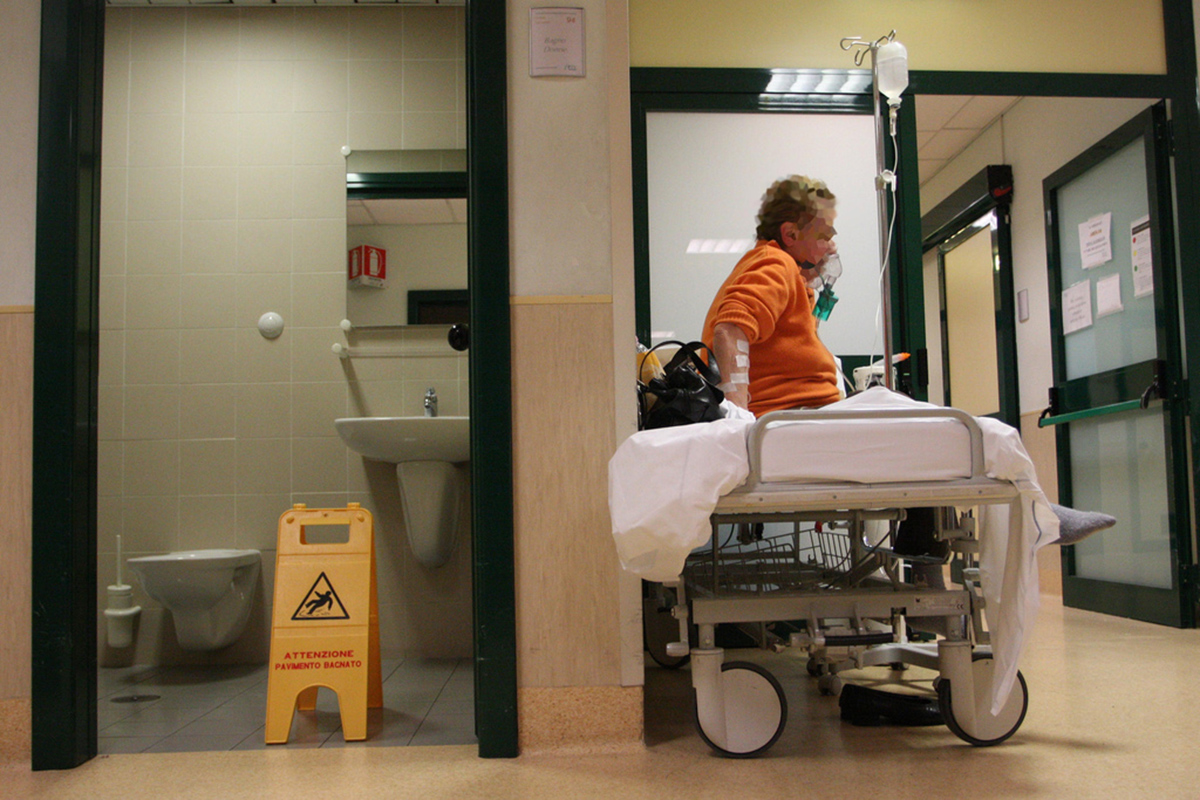Table of Contents
Although infections, such as Ebola and H1N1, sometimes make the news, there are much more common infections, which can pose a serious health risk to patients who are already hospitalized. MRSA, VAP and C. diff are all common healthcare associated infections, which are on the rise.

Can a Hospital Stay Make You Sick?
Hospitals are supposed to be a place where you go to get better. But in some instances, infections are spread, and patients get sick.
The infections may be caused by a virus, bacteria or fungi. Depending on the site of the infection, localized skin infections, pneumonia and bloodstream infections may result.
Healthcare associated infections can spread in any type of healthcare setting, such as acute care hospitals, nursing homes, outpatient surgical settings, and dialysis clinics.
Infections develop in hospitalized patients for a few different reasons. Bacteria can enter the patient’s body through an open site, such as a surgical wound, urinary catheter or endotracheal or tracheostomy tube.
Infections are also spread from patient to patient inadvertently by healthcare workers. Most people probably think hospitals are a sterile environment where medical professionals are trained to decrease incidences of infection transmission. While that is true, mistakes happen, and illnesses can spread. For example, certain infections can be spread through cross contamination. If a caregiver is treating a patient with a bacterial skin infection and does not sanitize their hands properly, they may pass the infection on to the next patient they treat.
Types of Hospital Acquired Infections
There are several common healthcare associated infections including the following:
MRSA: Methicillin resistant Staphylococcus aureus is a very common healthcare associated infection, which can spread rapidly. MRSA is a type of Staphylococcus infection, which is resistant to common antibiotics. The infection has become very common.
MRSA infections commonly involve the skin, but they can become severe enough to lead to bloodstream infections. Staph can also enter the lungs and lead to pneumonia. Symptoms vary depending on the area of the body infected.
C.diff: Clostridium difficile is a germ, which can cause inflammation of the colon. It may lead to severe diarrhea and stomach cramping. Some people carry the germ in their intestines. Bacteria normally present in the intestines prevents the germ from growing and making you sick. In the hospital, when you take antibiotics, good bacteria in the intestines may be destroyed along with the infection you are trying to treat. As a result, C.diff grows out of control and leads to intestinal symptoms. The infection may also be spread in the hospital from patient to patient by caregivers.
See Also: Superbug Clostridium Difficile About to Overtake MRSA in Hospitals
VAP: Ventilator-associated pneumonia is a common infection, which may develop in patients who require the assistance of a mechanical ventilator to breathe. In order to be placed on a ventilator, patients need to have a breathing tube inserted into their lungs through their mouth. Germs can enter the patient’s body through the tube and cause pneumonia.
- www.health.gov/hai/prevent_hai.asp
- www.ncbi.nlm.nih.gov/pmc/articles/PMC88988/
- www.cdc.gov/hai/
- Photo courtesy of pallamaio by Flickr: www.flickr.com/photos/pallamaio/2319811520
- Photo courtesy of Martin Pulaski by Flickr: www.flickr.com/photos/martinpulaski/6219604841


Your thoughts on this